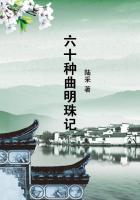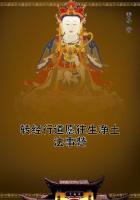The earlier document enunciated the rights of English subjects, the recent infringement of which made it desirable that they should be reasserted in convincing form. The American documents asserted rights which the colonists generally had enjoyed and which they declared to be "governing principles for all peoples in all future times."
But the greater significance of these State Constitutions is to be found in their quality as working instruments of government.
There was indeed little difference between the old colonial and the new State Governments. The inhabitants of each of the Thirteen States had been accustomed to a large measure of self-government, and when they took matters into their own hands they were not disposed to make any radical changes in the forms to which they had become accustomed. Accordingly the State Governments that were adopted simply continued a framework of government almost identical with that of colonial times. To be sure, the Governor and other appointed officials were now elected either by the people or the legislature, and so were ultimately responsible to the electors instead of to the Crown; and other changes were made which in the long run might prove of far-reaching and even of vital significance; and yet the machinery of government seemed the same as that to which the people were already accustomed. The average man was conscious of no difference at all in the working of the Government under the new order. In fact, in Connecticut and Rhode Island, the most democratic of all the colonies, where the people had been privileged to elect their own governors, as well as legislatures, no change whatever was necessary and the old charters were continued as State Constitutions down to 1818 and 1842, respectively.
To one who has been accustomed to believe that the separation from a monarchical government meant the establishment of democracy, a reading of these first State Constitutions is likely to cause a rude shock. A shrewd English observer, traveling a generation later in the United States, went to the root of the whole matter in remarking of the Americans that, "When their independence was achieved their mental condition was not instantly changed. Their deference for rank and for judicial and legislative authority continued nearly unimpaired."* They might declare that "all men are created equal," and bills of rights might assert that government rested upon the consent of the governed; but these constitutions carefully provided that such consent should come from property owners, and, in many of the States, from religious believers and even followers of the Christian faith. "The man of small means might vote, but none save well-to-do Christians could legislate, and in many states none but a rich Christian could be a governor."** In South Carolina, for example, a freehold of 10,000 pounds currency was required of the Governor, Lieutenant Governor, and members of A he Council; 2,000 pounds of the members of the Senate; and, while every elector was eligible to the House of Representatives, he had to acknowledge the being of a God and to believe in a future state of rewards and punishments, as well as to hold "a freehold at least of fifty acres of land, or a town lot."
* George Combe, "Tour of the United States," vol. I, p. 205.
** McMaster, "Acquisition of Industrial, Popular, and Political Rights of Man in America," p. 20.
It was government by a property-owning class, but in comparison with other countries this class represented a fairly large and increasing proportion of the population. In America the opportunity of becoming a property-owner was open to every one, or, as that phrase would then have been understood, to most white men. This system of class control is illustrated by the fact that, with the exception of Massachusetts, the new State Constitutions were never submitted to the people for approval.
The democratic sympathizer of today is inclined to point to those first State Governments as a continuance of the old order. But to the conservative of that time it seemed as if radical and revolutionary changes were taking place. The bills of rights declared, "That no men, or set of men, are entitled to exclusive or separate emoluments or privileges from the community, but in consideration of public services." Property qualifications and other restrictions on officeholding and the exercise of the suffrage were lessened. Four States declared in their constitutions against the entailment of estates, and primogeniture was abolished in aristocratic Virginia. There was a fairly complete abolition of all vestiges of feudal tenure in the holding of land, so that it may be said that in this period full ownership of property was established. The further separation of church and state was also carried out.
Certainly leveling influences were at work, and the people as a whole had moved one step farther in the direction of equality and democracy, and it was well that the Revolution was not any more radical and revolutionary than it was. The change was gradual and therefore more lasting. One finds readily enough contemporary statements to the effect that, "Although there are no nobles in America, there is a class of men denominated 'gentlemen,' who, by reason of their wealth, their talents, their education, their families, or the offices they hold, aspire to a preeminence," but, the same observer adds, this is something which "the people refuse to grant them." Another contemporary contributes the observation that there was not so much respect paid to gentlemen of rank as there should be, and that the lower orders of people behave as if they were on a footing of equality with them.















